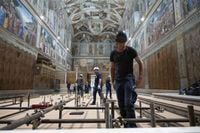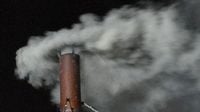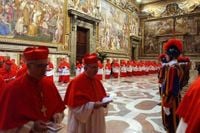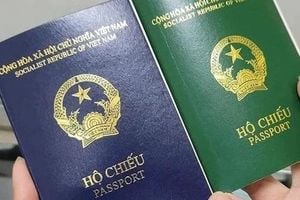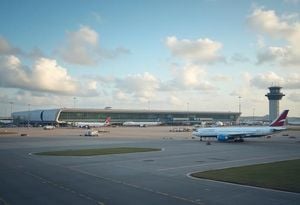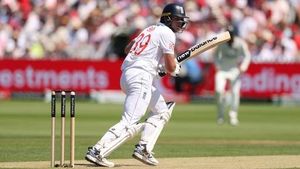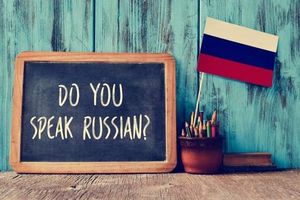As the Vatican prepares for a historic conclave, all eyes are set on the Sistine Chapel where 133 cardinals will gather to elect the successor of Pope Francis. On May 7, 2025, this momentous event will unfold under the watchful gaze of Michelangelo's frescoes, marking a pivotal moment for the Catholic Church.
In the days leading up to the conclave, the cardinals have been engaging in daily meetings known as "general congregations," where they have discussed pressing issues facing both the Church and the world today. These meetings serve as a crucial platform for cardinals from various countries to exchange ideas and prepare for the election. According to Bernard Bédarida, a French journalist specializing in Vatican affairs, these discussions are vital for understanding the diverse perspectives within the Church.
On the morning of May 6, the cardinals held their final preparatory meeting, avoiding media attention as they focused on the significant challenges they must address. They concluded the meeting by issuing a call for "a just and lasting peace" in regions like Ukraine and the Middle East, reflecting the Church's ongoing commitment to global issues.
As the conclave begins, the cardinals will be sworn to absolute secrecy, a tradition that underscores the gravity of their task. They will be locked inside the Sistine Chapel, with the Vatican announcing that the telephone network will be cut off from 3 PM (13:00 GMT) on May 7 until a new pope is elected. This measure aims to prevent any external communication that could interfere with the election process.
The conclave is governed by the apostolic constitution Universi dominici gregis, established by Pope John Paul II and amended by Pope Benedict XVI. This document outlines the rules and procedures that dictate how the election will unfold, including the requirement that at least two-thirds of the votes from the cardinal electors are necessary for a valid election.
On the first day of voting, the cardinals will cast their ballots, with one round of voting scheduled. If no candidate receives the required votes, subsequent rounds will take place, with two votes held each day until a new pope is elected. Each cardinal will write their choice on a rectangular ballot, which will read "Eligo in Summum Pontificem" (I elect the supreme pontiff) on the top half. The choice must be written in a script that is not easily recognizable, maintaining the confidentiality of the voter's selection.
After all ballots are cast, the first scrutineer will mix the ballots in the urn before counting begins. The process is meticulous: one scrutineer will unfold a ballot, another will read it aloud, and the last will ensure that the ballot is preserved securely by piercing it with a needle and thread. The ballots will later be burned, with the color of the smoke serving as the only public signal of the election's progress. Black smoke indicates no election, while white smoke signifies that a new pope has been chosen.
The Vatican has taken steps to ensure the integrity of the election process, including strict controls to prevent any unauthorized audiovisual equipment from being installed in the chapel. The word "secret" appears over 20 times in the Universi dominici gregis, emphasizing the importance of confidentiality during the conclave. Cardinals are prohibited from using computers or the Internet, ensuring that their discussions and decisions remain private.
As the cardinals prepare for the conclave, they will be residing in the Sainte-Marthe residence, which offers hotel-like amenities. However, due to the large number of electors, some will be accommodated at Santa Marta Vecchia, a nearby facility. The cardinals' support staff, including doctors, drivers, and cooks, have also sworn to secrecy, highlighting the comprehensive nature of the conclave's confidentiality.
The upcoming conclave is notable not only for its size but also for its international representation, with cardinals hailing from around 70 different countries. This diversity is expected to influence the election, as the cardinals consider various profiles and personalities for the papacy. Archbishop Jean-Paul Vesco of Algeria noted that there are at least five or six potential candidates, each with unique qualities and backgrounds.
As the world watches closely, the election of the new pope will be a moment of great significance for the Catholic Church. The cardinals' deliberations and the subsequent announcement of the new pope will not only shape the future of the Church but also resonate with millions of Catholics worldwide. The protodeacon will announce the election from the balcony of St. Peter's Basilica with the words "Anuncio vobis gaudium magnum, habemus papam" (I announce to you a great joy, we have a pope), followed by the newly elected pope's apostolic blessing.
With the conclave set to begin, the anticipation builds as the cardinals prepare to fulfill their solemn duty. The outcome of their deliberations will have profound implications for the Church and its followers, marking a new chapter in the history of Catholicism.
